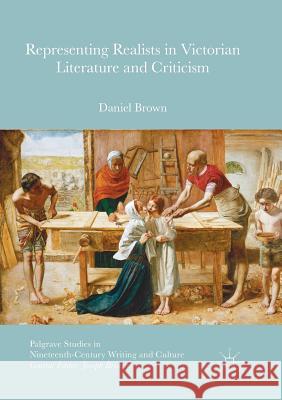Representing Realists in Victorian Literature and Criticism » książka
topmenu
Representing Realists in Victorian Literature and Criticism
ISBN-13: 9783319821528 / Angielski / Miękka / 2018 / 194 str.
Kategorie:
Kategorie BISAC:
Wydawca:
Palgrave MacMillan
Seria wydawnicza:
Język:
Angielski
ISBN-13:
9783319821528
Rok wydania:
2018
Wydanie:
Softcover Repri
Ilość stron:
194
Waga:
0.25 kg
Wymiary:
21.01 x 14.81 x 1.09
Oprawa:
Miękka
Wolumenów:
01
Dodatkowe informacje:
Wydanie ilustrowane











